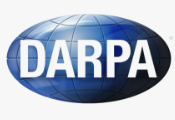New Type of Quantum Computer Studies the Dance of Elementary Particles
New Type of Quantum Computer Studies the Dance of Elementary Particles
The study of elementary particles and forces is of central importance to our understanding of the universe. Now a team of physicists from the University of Innsbruck and the Institute for Quantum Computing (IQC) at the University of Waterloo show how an unconventional type of quantum computer opens a new door to the world of elementary particles.


























